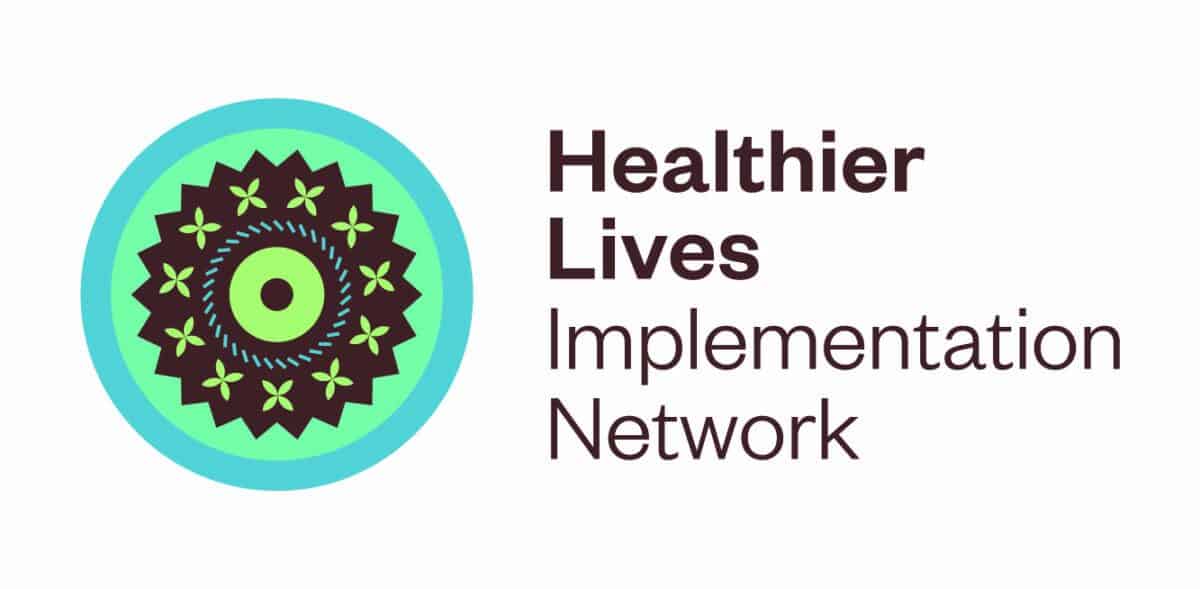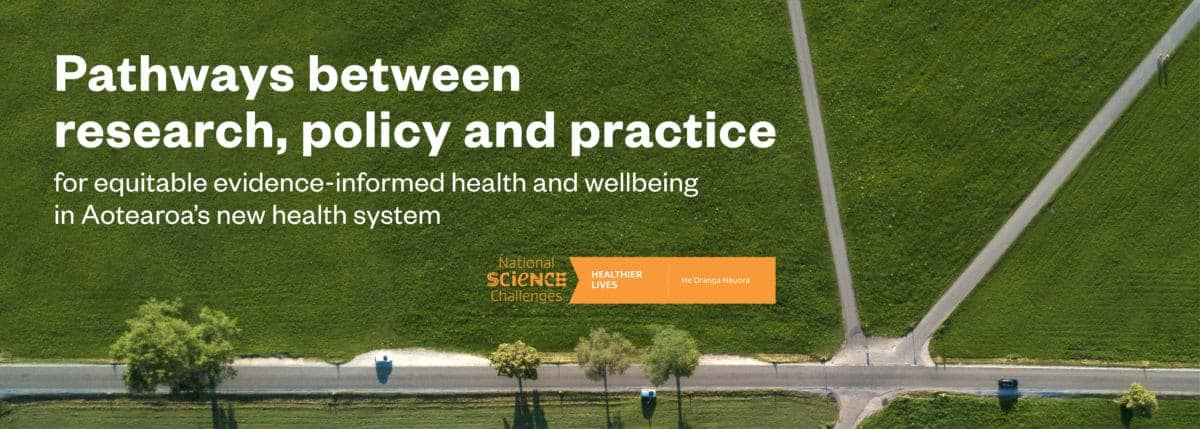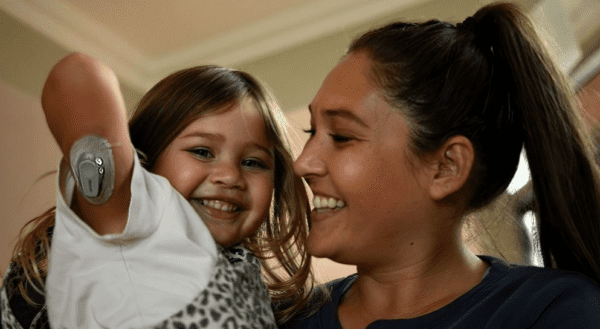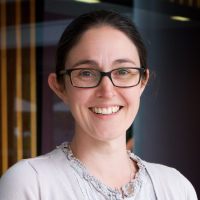Healthier Lives Newsletter March 2023
5 April 2023
In this issue:
- Director’s message
- Healthier Lives Implementation Network – call for collaboration
- Pathways for turning research evidence into policy and practice
- Pharmac makes moves towards funding CGM
- Event: Improved data system needed to make the most of New Zealand’s data assets
- Expanding capacity for ctDNA clinical translation
- Featured publications: a plan to target heart failure treatment; Māori experiences of social housing; prediabetes management in primary care
- In the news: liveable cities; “real” cost of supermarket promotions
- Congratulations
Director’s message

As we reflect on the flooding that has devastated parts of Aotearoa, it is evident that the effects of climate change are with us now and they are intimately connected with our health.
Insights from previous natural disasters may have relevance for recent events. Healthier Lives research undertaken in the aftermath of the 2010-11 Christchurch earthquakes found that people living in areas with severely damaged homes faced increased rates of hospital admissions from cardiovascular disease for up to 12 months after the quakes. This is a salient reminder that we need to take good care of the people whose homes, livelihoods and businesses have been damaged by the floods. They will endure tremendous stresses over the year ahead.
Globally, climate change is now the single greatest risk to health. However, there are things we can do in Aotearoa to improve health which will also help to mitigate climate change. In these areas of potential co-benefits for the health of our population and our planet, lies hope.
We could, for example, change the way we produce and consume food to reduce both greenhouse gas emissions and diet-related diseases. We could invest in public transport and other measures to reduce vehicle emissions and increase physical activity.
Climate change affects us all but it exacerbates pre-existing socioeconomic inequalities, one of the major causes of ill health. Eliminating poverty and inequality must therefore become an imperative in the era of climate change.
To make systemic changes on the scale that is needed will require leadership, strategy and action across the whole of government, with support from many sectors. In an area close to my heart, I would like to see the development of a national food strategy to address the critically important role that food plays in our health, economy and environment.
Central to many of the changes required to improve health in Aotearoa New Zealand is the need for implementation of research evidence. Many of the articles in this newsletter speak to these efforts.

Jim Mann
Director, Healthier Lives-He Oranga Hauora
Healthier Lives Implementation Network – call for collaboration

A unique network of Māori and Pacific community-based health providers, researchers and health system representatives has been formed to help take evidence from the research arena into community practice.
A careful process of co-design is currently underway to ensure that the Healthier Lives Implementation Network meets the needs of communities and community health providers, enabling them to determine their own priorities when deciding which programmes to adapt and implement.
Community health providers who attended a virtual hui-fono on 8 March confirmed that they see value in the Network and provided strong direction for its operation. The Network is now scoping areas of interest and identifying novel health programmes with evidence of success to share with providers.
It’s early days but the Implementation Network has already appointed an advisory board, leadership team and three community researchers who will support the providers during implementation. The community researchers will also collect qualitative data on the implementation processes to share learnings of what works and what doesn’t. The Network has published a study protocol and created a website as a home for information
We invite researchers to join the network. We are interested in having researchers who would like to work in partnership with community health providers and help them adapt and implement health programmes developed through research. There may be an opportunity to create novel programmes with providers when existing programmes do not meet community needs. Interested researchers are welcome to contact Prof John Oetzel at for more information.
Implementation Network website: www.healthierlivesimplementationnetwork.co.nz/
Study protocol: implementationsciencecomms.biomedcentral.com/articles/10.1186/s43058-022-00373-4
Pathways for turning research evidence into policy and practice

Healthier Lives Director Jim Mann has published an article in The Conversation outlining the key elements required for bringing research innovation into our healthcare system.
The elements were developed for the Pathways between research, policy and practice report, following a webinar and workshop in late 2021.
Critically, we need expert capacity in the new health system to receive and analyse national and international research evidence, develop new policies and implement relevant findings to improve the health and wellbeing of all in Aotearoa New Zealand.
Pharmac makes moves towards funding CGM

Healthier Lives co-hosted the Transforming lives: 100 years of insulin symposium at Parliament House last November to celebrate this life-saving medical breakthrough. The event was also an opportunity to make the case for equitable access to continuous glucose monitoring, a technology that is important for the management of type 1 diabetes in the 21st century.
In a promising development, Pharmac released a media statement in February this year saying that it will “soon be seeking competitive commercial offers for the supply of funded Continuous Glucose Monitors (CGMs) in New Zealand.”
The Transforming Lives co-hosts – Healthier Lives, Edgar Diabetes and Obesity Research, Diabetes NZ, and the Southland and Central Otago-based Lions NZ District 202F – are encouraged by this announcement and we look forward to seeing the criteria around this funding decision.
In a recent Newsroom article on CGM, Healthier Lives Director, Prof Jim Mann, commented that “after so many years of petitioning, Pharmac’s latest moves are hopefully a step closer, but it’s a crucial time to not let the ball drop, and to ensure that CGMs are funded for everyone who needs them, as soon as possible”.
Improved data system needed to make the most of New Zealand’s data assets

New Zealand’s data science community gathered at Te Papa on 9 March for the Our Data Sources as a Strategic National Asset symposium, opened by the Minister of Statistics Hon Dr Deborah Russell. Healthier Lives was proud to support this event, which was organised by the Informatics for Social Services and Wellbeing Programme, Te Rourou Tātaritanga, and the Social Wellbeing Agency. The capacity audience heard from a stellar line up of international experts in applied data science and policy.
New Zealand’s big and linked data is particularly valuable for population-level health planning and research. The symposium confirmed the quality of these data assets and reinforced the need for an improved data system to make better use of them.
Symposium website: terourou.org/symposium2023/
Expanding capacity for ctDNA clinical translation

Prof Parry Guilford (University of Otago) has received donations from members of the public totalling around $80,000 to extend his Healthier Lives-funded research on circulating tumour DNA (ctDNA). The fundraising event was hosted by Oliver Bradshaw, a member of the Catwalk Spinal Cord Injury Research Trust, and featured Southland-based cancer patient advocate Melissa Vining.
The funds will be put towards the development of ctDNA as an affordable clinical tool for early detection of colorectal cancer. This fast and non-invasive technology will be of special benefit for rural New Zealand communities facing restricted access to colonoscopy and specialist investigations.
Prof Guilford’s long involvement in ctDNA research has inspired other groups to investigate novel markers for early cancer detection, expanding this area of research in New Zealand. Dr Annie Wong (University of Otago, Wellington) is a recent recipient of an HRC Health Delivery Research Project Grant aimed to improve the diagnostic process of lung cancer by replacing invasive biopsies with a blood-based ctDNA test, and A/Prof Aniruddha Chatterjee (University of Otago) received a New Zealand Lottery Grant for translational research aimed at establishing and validating a panel of the blood-derived DNA methylation markers found in ctDNA to improve screening for colorectal cancer.
In the news
The health cost of unregulated supermarket promotions

Healthier Lives deputy director Prof Cliona Ni Mhurchu (University of Auckland) discusses the “real” price of supermarket promotions in a recent Newsroom opinion piece. Promotions can increase supermarket sales by up to fourfold but the promoted products which end up in our shopping baskets are often not healthy options.
Prof Ni Mhurchu argues for legislative regulation to encourage the promotion of healthy foods while limiting the promotion of unhealthy options. The UK is leading the way in this area, having legislated to limit unhealthy supermarket promotions, placed a levy on sugary drinks, and introduced programmes to control the sugar and salt content of foods. Similar regulations in Aotearoa New Zealand would result in real cost savings by reducing the burden on our health and our health care system.
Newsroom article: www.newsroom.co.nz/ideasroom/why-supermarket-super-deals-arent-such-a-good-deal
Designing resilient cities

In a recent Stuff article, Healthier Lives principal investigator Prof Simon Kingham (University of Canterbury), advocates for more one-way streets in the Christchurch CBD.
Research evidence shows that making the streets safer and more pedestrian friendly will attract more people to use the space and will increase the use of alternatives to cars such as walking, cycling and public transport.
According to Prof Kingham, who is chief science adviser to the Ministry of Transport, another major benefit of vehicle traffic reduction is the positive impact it has on our health. The most recent Stats NZ indicators estimated that more than 3,300 premature deaths each year are related to air pollution exposure, which is higher than the combined deaths from melanoma, diabetes, colon cancer, and road accidents.
Stats NZ: www.stats.govt.nz/indicators/human-health-impacts-of-pm2-5-and-no2/
Publications
Featured publications
Identification of clinically relevant cohorts of people with heart failure from electronic health data in Aotearoa: potential, pitfalls and a plan

Currently available medications are not effective for all patients with heart failure (HF). The authors of a recent viewpoint in the New Zealand Medical Journal are therefore arguing that Aotearoa New Zealand urgently needs a new plan to identify and treat those patients who will be able to respond to long-term medication for heart failure.
They are also calling for strong oversight of this process by a national HF working group, comprising clinicians and researchers with expertise in HF, equity, quality improvement and population health, as well as input from patients and whānau, Te Whatu Ora, Te Aka Whai Ora and the Ministry of Health.
Corresponding author Dr Vanessa Selak (University of Auckland) and several of her co-authors are members of the Manawataki Fatu Fatu project, co-funded by Healthier Lives and The National Heart Foundation of New Zealand. Other authors are members of the MENZACS study, co-funded by Healthier Lives, the Heart Foundation and the Health Research Council of New Zealand.
Māori experiences of social housing in Ōtautahi Christchurch

New research by ACTIVATION researcher Els Russell seeks to understand how social housing is experienced by Māori tenants in Aotearoa. It outlines the key findings of her Master’s thesis: “A place to call home: Māori experiences of social housing in Ōtautahi”.
Ms Russell’s research highlights the way in which colonisation has led to intergenerational housing disenfranchisement for Māori and suggests practical measures to help the State to better meet its responsibilities in supporting the wellbeing of Māori social housing tenants
A key message of this research is that social housing has the potential to do much more than simply house people. Housing design that recognises the importance of relationships, e.g. through inclusion of communal spaces, fosters wellbeing by creating houses where people can feel at home.
This research has been featured in Stuff and its findings have been warmly welcomed by the Ōtautahi Community Housing Trust.
This research was funded through a University of Otago Māori Master’s Research Scholarship and Master’s postgraduate publishing bursary. It was additionally supported through the ACTIVATION project, jointly funded by the Healthier Lives and Ageing Well National Science Challenges.
Publication: www.tandfonline.com/doi/full/10.1080/1177083X.2023.2180762
https://www.stuff.co.nz/pou-tiaki/131474755/social-housing-has-potential-to-lift-mori-wellbeing-research-shows
It is time for a more targeted approach to prediabetes in primary care in Aotearoa New Zealand
Healthier Lives-funded research into prediabetes helped inform this recent article by Dr Christine Barthow, Prof Jeremy Krebs and colleagues, which calls for changes in policy and practice to improve diabetes prevention in NZ.
Given that one in five New Zealanders are estimated to have prediabetes, a more targeted approach to preventing progression to type 2 diabetes is required, as current guidelines are inadequate and unsustainable for prediabetes management in primary care.
Christine Barthow was supported by a University of Otago Postgraduate Publishing Bursary.
Publication: www.publish.csiro.au/hc/Fulltext/HC22089
Recent publications
Supporting implementation of interventions to address ethnicity-related health inequities: frameworks, facilitators and barriers – a scoping review protocol. Papillon Gustafson, Yasmin Abdul Aziz, Michelle Lamber, Karen Bartholomew, Rachel Brown, Peter Carswell, Adam Fusheini, Mihi Ratima, Patricia Priest, Sue Crengle. BMJ Open 2023;13:e065721. doi: 10.1136/bmjopen-2022-065721
Building sustainable health data capability in Aotearoa New Zealand: opportunities and challenges highlighted through COVID-19. Giulio Valentino Dalla Riva, Shaun Hendy, Kevin Ross, Andrew Sporle. Journal of the Royal Society of New Zealand 2023, doi: 10.1080/03036758.2022.2141806
Understanding the barriers and facilitators that influence access to quality cardiovascular care for rural Indigenous peoples: protocol for a scoping review. Taria Tane, Vanessa Selak, Kyle Eggleton, Matire Harwood. BMJ Open 2022;12:e065685. doi: 10.1136/bmjopen-2022-065685
Healthier Lives Implementation Research Network for Māori and Pacific community health providers in Aotearoa New Zealand: a study protocol with an observational mixed methods design. John Oetzel, Dianne Sika-Paotonu, Darrio Penetito-Hemara, Akarere Henry. Implement Sci Commun 3, 122, 2022. https://doi.org/10.1186/s43058-022-00373-4
The neglected potential of red and processed meat replacement with alternative protein sources: Simulation modelling and systematic review. Andrew N Reynolds, Cliona Ni Mhurchu, Zi-Yi Kok, Christine Cleghorn. EClinicalMedicine vol. 56 101774, 2022, doi: 10.1016/j.eclinm.2022.101774
Warm congratulations to…

Dr Sandra Fitzgerald (University of Auckland), Healthier Lives PhD graduate, who has been awarded a prestigious Cancer Research Trust NZ John Gavin Fellowship to extend her ctDNA research for two years.

Dr Sarah Gerritsen (University of Auckland), Healthier Lives researcher, who was awarded an Early Career Research Excellence Award by the University of Auckland.

Associate Professor Cherie Blenkiron (University of Auckland), Healthier Lives principal investigator, on her recent promotion.

Senior Research Fellow Dr Justine Camp (University of Otago), member of the Healthier Lives Governance Group and Kāhui Māori, on her recent promotion.
Follow us on Twitter @HealthierNZ or visit our website to keep up to date with news about the prevention and treatment of non-communicable diseases in Aotearoa New Zealand.


